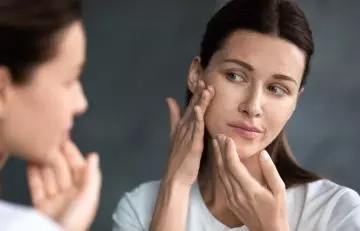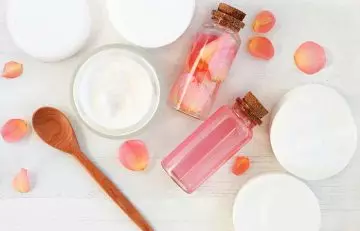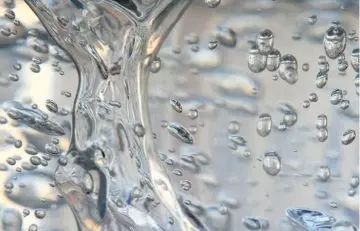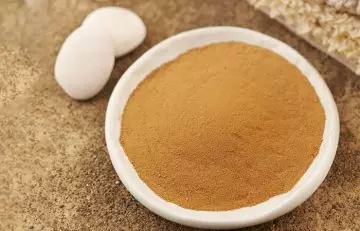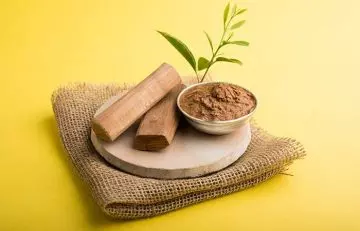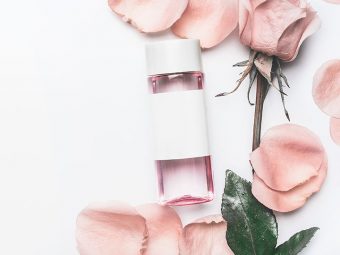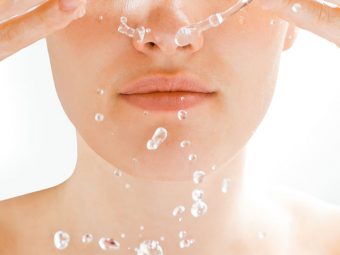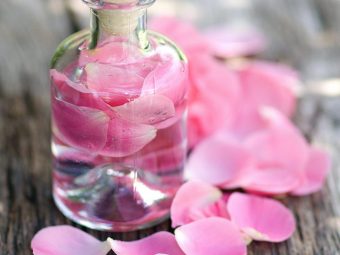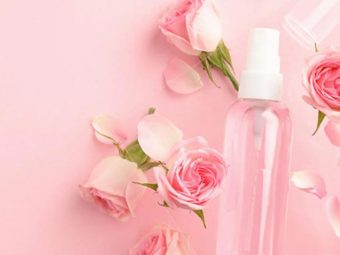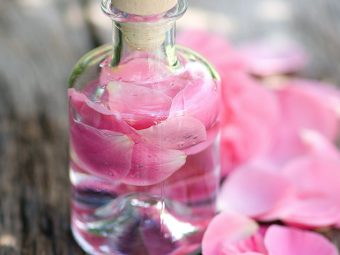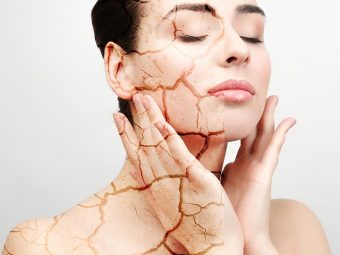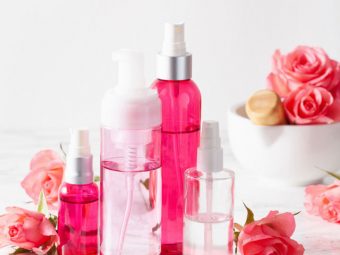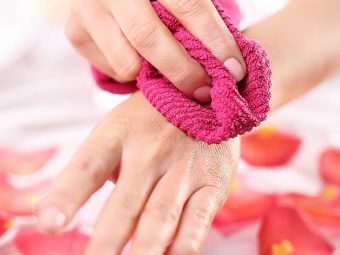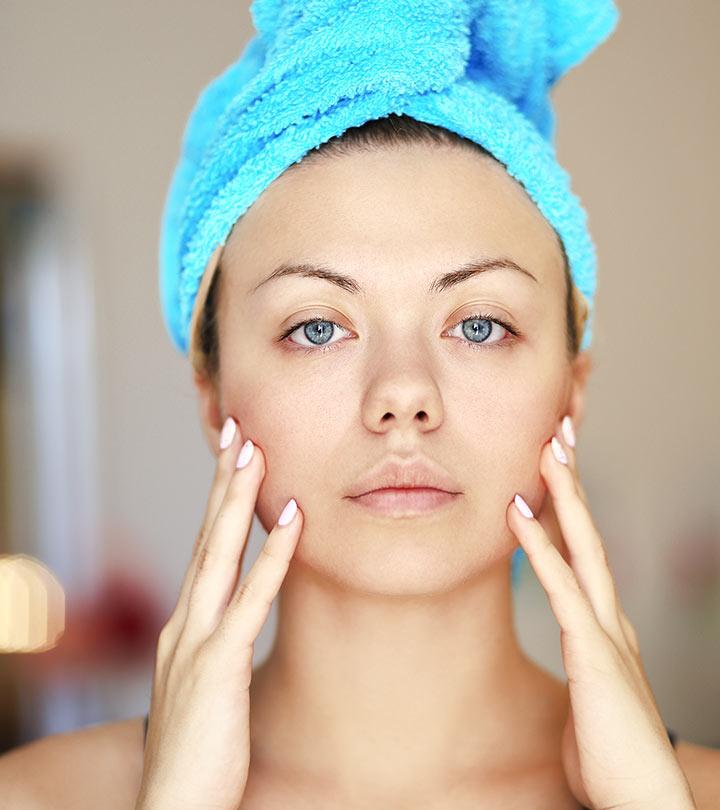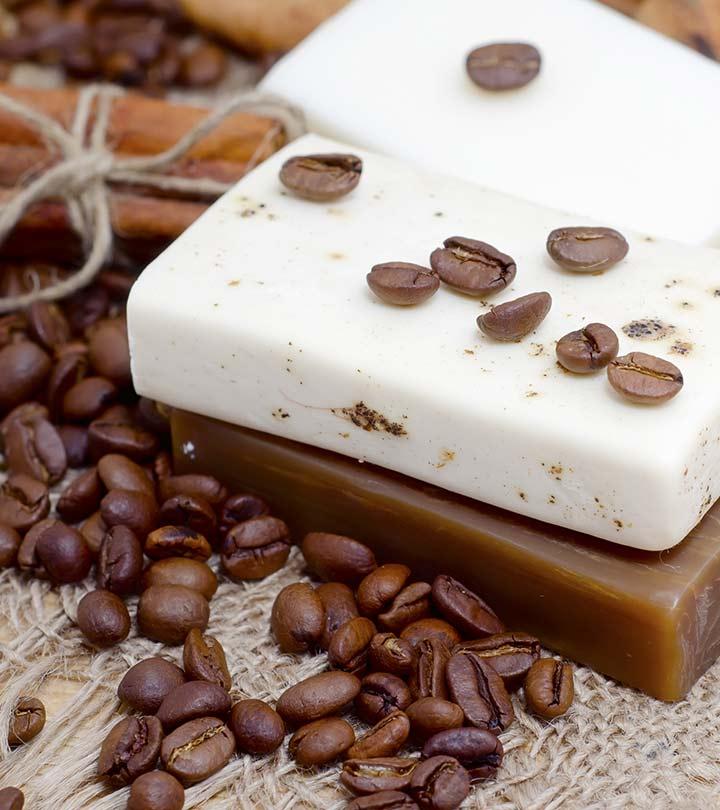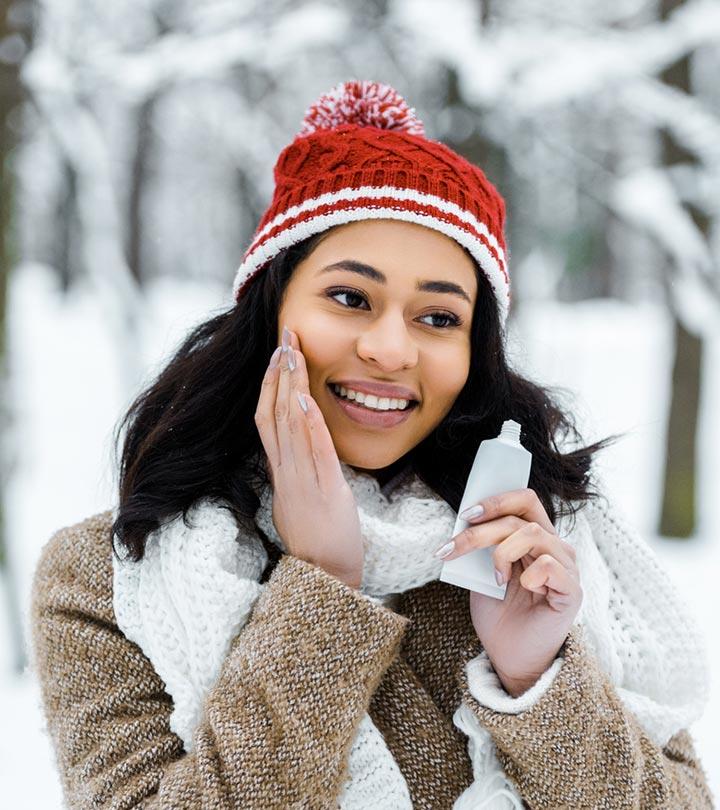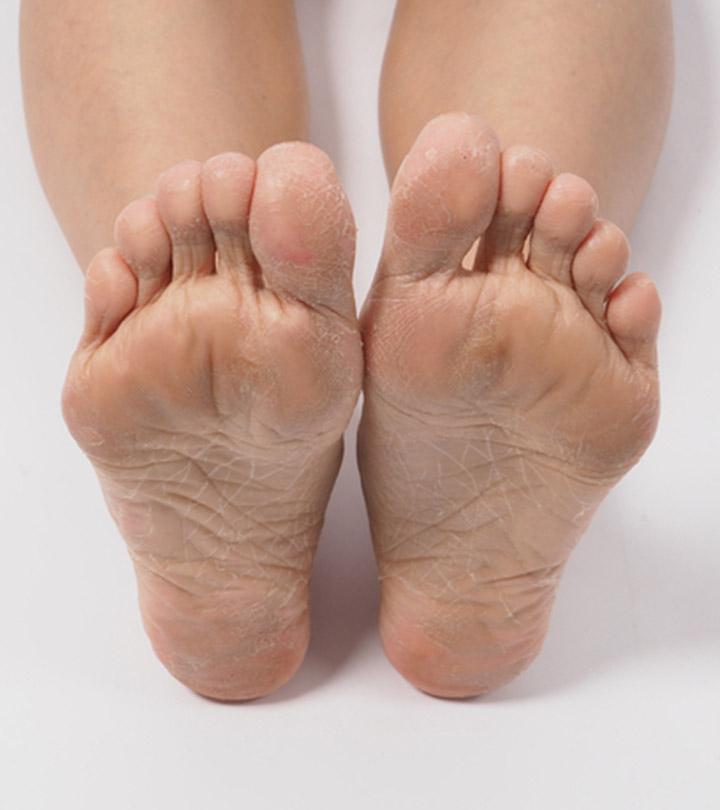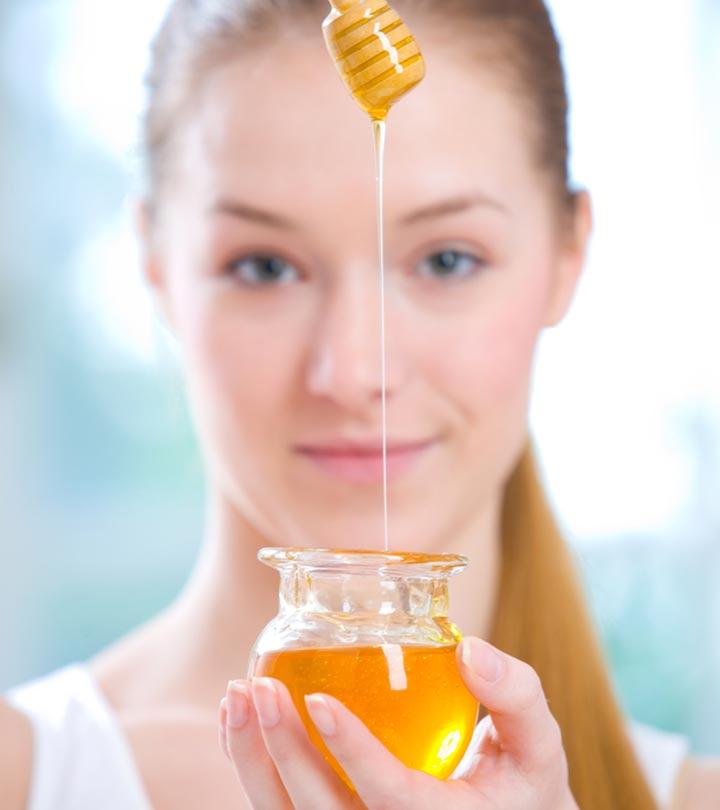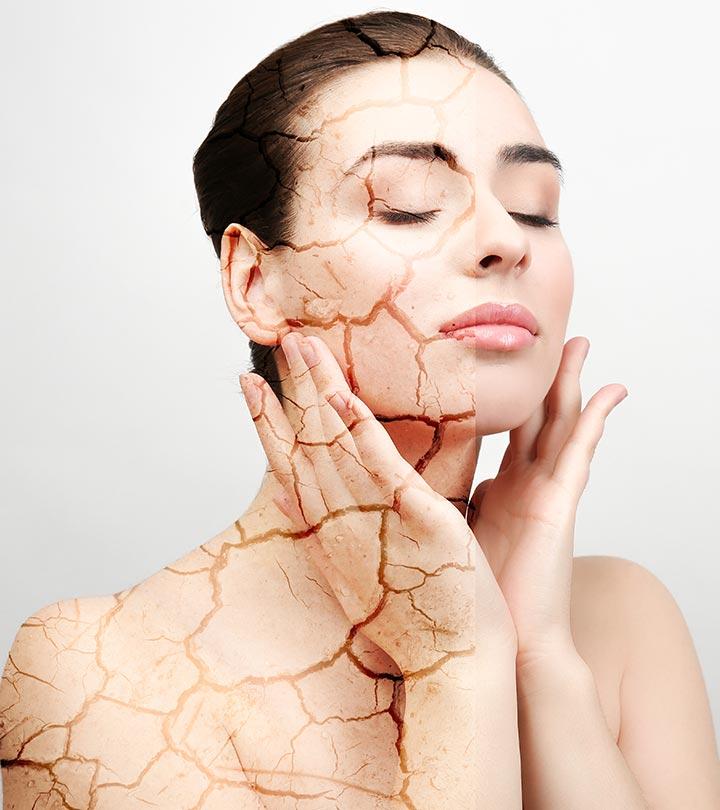How To Use Rose Water For Dry Skin
Simple and easy-to-follow ways to help you make the most of rose water and soothe dry skin.
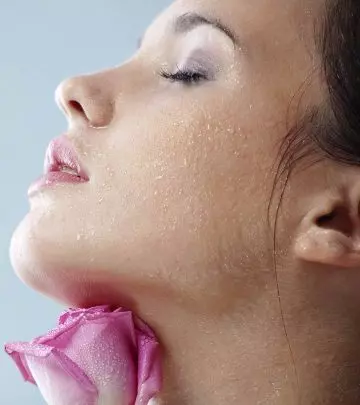
Image: iStock
Come winter, and all those skin issues start peeping out again. Don’t you think your skin needs to be prepared for winter’s arrival? That is why you need to incorporate rose water for dry skin in your skin care regimen. Yes, to prepare your skin to face the harsh winter, you need to give it extra care and protection.
Your skin hydration plays a crucial role in achieving fresh and healthy skin. If you have dry skin, you need to be extra careful with the products you choose and how you care for your skin. A balanced skin care routine is all you need to be tension-free during the winter. Wondering how to use rose water for your dry skin? Well, we can help you. This article discusses the benefits of rose water and how you can use it. Keep reading.
 Trivia
TriviaIn This Article
Is Rose Water Good For Dry Skin?
Rose water by itself is not going to do wonders for your skin, but in combination with other moisturizing ingredients, it helps keep your skin feeling hydrated for longer by working as a humectant while also improving its texture. The reason this fragrant liquid suits dry skin is because of how efficiently it refines your pores without drying your skin out by functioning as a pH-balancing agent and natural astringent. Rose water is usually used as an additive in skin care treatments as it has skin balancing properties. It can be used by itself as a toner or in combination with other moisturizing ingredients for dry skin. Here, I’ve put together 4 rose water treatments that are keeping my skin feeling great this winter.
How To Use Rose water For Dry Skin
1. Rose Water For Dry Skin
You Will Need
- 1 tbsp pure rose water
- Cotton pad
- Towel
- Facial cleanser
- Moisturizer
Prep Time
2 minutes
Treatment Time
5 minutes
Method
- Wash your face with a facial cleanser and pat dry.
- Saturate a cotton pad with the rose water and dab it onto your face.
- Let it dry.
- Once dry, moisturize your face.
How Often?
Twice a day.
Why This Works
Cleansing, toning, and moisturizing your face is an essential part of any skincare routine. This rose water toner, unlike most toners available on the market, provides plant-based hydration and is extremely gentle on your skin. It may help get rid of residual dirt and grime without drying out your skin. In fact, helps in skin-revitalizing as it is a natural emollient.
 Quick Tip
Quick Tip2. Glycerin, Lemon, And Rose Water For Dry Skin
You Will Need
- 3 tbsp glycerin
- 3 tbsp pure rose water
- 1 tsp lemon juice
- Clean bottle for storage
- Facial cleanser
- Towel
Prep Time
2 minutes
Treatment Time
2 minutes
Method
- Combine the glycerin, rose water, and lemon juice and pour the mixture into a clean bottle so that it can be stored. (Store the mixture in your refrigerator.)
- Take a coin-sized amount of the mixture and apply this onto your face and neck.
- Ensure that your hands are clean during application.
- Gently massage your skin in circular motions until the lotion is completely absorbed.
How Often?
Every night.
Why This Works
Glycerin helps hydrate your face and leaves your skin feeling extremely supple (1). The ingredient is easily absorbed and provides your skin with a non-greasy, long-lasting hydration booster. Lemon, conversely, gives your skin a vitamin C boost, helps treat acne or scars with its bleaching properties, and provides a skin clarifying effect (2) (3).
Kelly, a blogger, shared her experience using rose water and glycerin. Satisfied with the results, she shares, “I could have started using this years ago and reaping the benefits if only someone had told me… Rosewater and Glycerin… Someone online suggested this to me as a moisturizer. Let me just highlight the fine points:
1) NO detergents, unnatural chemicals, or alcohol- all-natural ingredients.
2) inexpensive- you could even make it yourself if you were so inclined
3) absorbs fully into skin, not oily or over-drying, and it smells nice and light (i).”
3. Multani Mitti, Milk, And Rose Water For Dry Skin
You Will Need
- 2 tbsp multani mitti
- 1 tbsp milk
- 1 tbsp pure rose water
- Facial cleanser
- Towel
Prep Time
2 minutes
Treatment Time
20 minutes
Method
- Wash your face with a facial cleanser and pat dry.
- Combine the multani mitti, milk, and rose water until you get a smooth paste.
- Apply this paste onto your face.
- Wait for 20 minutes and then proceed to wash the mixture off of your face with cool water.
How Often?
1-2 times a week.
Why This Works
While multani mitti , a nutrient-rich ingredient, is generally used to treat oily skin, this face mask contains the goodness of milk and rose water to help treat dryness. Milk contains lactic acid, which helps soften your skin while fading blemishes (4). The mask helps with skin softening, exfoliating, and skin soothing.
4. Sandalwood And Rose Water For Dry Skin
You Will Need
- 1 tbsp sandalwood powder
- ½ tsp coconut oil
- ½ tsp almond oil
- 1 tsp pure rose water
- Facial cleanser
- Towel
Prep Time
2 minutes
Treatment Time
20 minutes
Method
- Wash your face with a facial cleanser and pat dry.
- Combine the sandalwood powder, oils, and rose water until you get a smooth paste.
- Apply this mixture onto your face as you would a face pack.
- Leave it on for 20 minutes or until it is completely dry.
- Wash your face with cool water and pat dry.
How Often?
1-2 times a week.
Why This Works
Sandalwood helps mildly exfoliate your skin while nourishing it. When combined with the oils and rose water, it creates an excellent face pack for intense hydration. and may have skin regenerating effects. This face pack with its nourishing botanical extract will help with skin conditioning and skin rejuvenating.
Infographic: 3 Easy Ways To Use Rose Water For Dry Skin
Rose water is an amazing ingredient that can be combined with other natural ingredients to make your face look bright, supple, and soft. If you have dry skin, this skin-rejuvenating elixir can be a godsend. Check out the infographic below to learn how you can use this hydrating ingredient to keep your skin radiant.

Illustration: StyleCraze Design Team
A balanced and consistent skincare routine is important to keep your skin hydrated and nourished. Applying rose water to your dry skin with ingredients such as lemon juice, glycerin, or Multani mitti can work wonders on your skin. These powerful combinations of ingredients with antioxidant and anti-inflammatory properties, remove dirt and grim, offer long-lasting hydration, and reduce acne and dark spots. All you need to do to reap the floral water benefits is apply rose water with your favorite combination of ingredients once or twice a week for 20 minutes and see the results over time.
Frequently Asked Questions
What is good for dry skin?
Moisturizing the skin with products that suit your skin is the best way to treat dry skin.
Which toner is best for dry skin?
Toners containing hyaluronic acid, rose water, or vitamin E are the best for dry skin as they help with moisture retention.
Can I sleep with rose water on my face?
Yes, you can sleep with rose water on the face for skin repairing effects and also to get radiant skin the following day.
Are rose water and glycerin good for dry skin?
Yes, rose water and glycerine are hydrating ingredients that can also be used for skin brightening.
Should I wash my face after applying rose water?
No, allow rose water to naturally dry on the face as it is a skin soothing hydrosol with skin protecting effects.
Key Takeaways
- Rose water hydrates, soothes, and nourishes the skin.
- It also refines skin pores without drying the skin.
- This fragrant liquid can be used alone or along with other moisturizing ingredients.
- It also helps get rid of dirt and grime and refreshes the skin.

Image: Stable Diffusion/StyleCraze Design Team
Discover the wonders of rose water, a natural remedy renowned for its benefits on dry skin, hair, and overall beauty. Check out the video below to unlock its secrets and achieve its optimal benefits!
Personal Experience: Source
StyleCraze's articles are interwoven with authentic personal narratives that provide depth and resonance to our content. Below are the sources of the personal accounts referenced in this article.
i. Magic Potion~Rosewater and Glycerinhttps://alienredqueen.wordpress.com/2012/03/16/magic-potionrosewater-and-glycerin/
References
Articles on StyleCraze are backed by verified information from peer-reviewed and academic research papers, reputed organizations, research institutions, and medical associations to ensure accuracy and relevance. Read our editorial policy to learn more.
- A double-blind study comparing the effect of glycerin and urea on dry eczematous skin in atopic patients
https://pubmed.ncbi.nlm.nih.gov/12013198/ - Citrus limon (Lemon) Phenomenon—A Review of the Chemistry Pharmacological Properties Applications in the Modern Pharmaceutical Food and Cosmetics Industries and Biotechnological Studies
https://www.ncbi.nlm.nih.gov/labs/pmc/articles/PMC7020168/ - Vitamin C in dermatology
https://www.ncbi.nlm.nih.gov/labs/pmc/articles/PMC3673383/ - Milk Proteins—Their Biological Activities and Use in Cosmetics and Dermatology
https://www.ncbi.nlm.nih.gov/labs/pmc/articles/PMC8197926/





